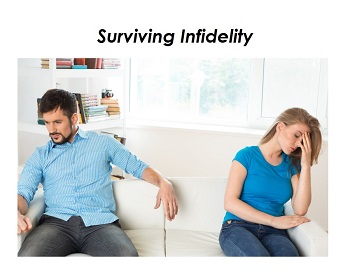Infidelity seems to be on the rise. According to researchers, the number of people who cheat has increased more than 40 percent since 1990. More than 5.7 new users registered on Ashley Madison last year. The site caters to cheating spouses who are looking to meet dates for extramarital affairs.
Why do people cheat? A survey conducted by Ashley Madison found that the majority of cheating spouses step out in search of sex. But, that is not the only cause of cheating. Spouses also cheat to find emotional reassurance and attention. People tend to expect too much out of a marriage. When things are not like they were when the couple first met, one or both partners may stray.
An affair can quickly spell the end of an even seemingly happy marriage. However, an affair does not have to result in a divorce. Relationship therapists agree that it is possible to save a marriage after an affair. If both partners are willing to put in the hard work, there is hope for the couple. Here are some tips for surviving infidelity.
#1 End All Contact With The Third Party
The first thing that you need to do after an affair is to end all contact with the third party. All emails, text messages and calls must stop. That goes for both partners. The person who cheated must not see the third party again. The partner who was cheated on should not contact the outside person for information about the affair.
If the third party is a co-worker or someone that you must see for whatever reason, keep all contact to the very minimum. If you cannot leave the company or transfer to another position, maintain a polite, but a business-like relationship.
#2 Commit To Total Honesty
Many people who cheat reveal only some of the truth about the affair. However, this makes it really hard to rebuild trust. If you are the partner who cheated, you must prove to your spouse that you are committed to regaining their trust. You can do that by being honest and upfront about what happened. Don’t withhold information thinking that it will help your spouse. They will feel more betrayed later on when they find out that you were not completely honest. What kind of details should you share? How long the relationship lasted. The extent of the affair. Why you cheated. Basically, share whatever information they want to know. Your openness will help them feel more secure in the relationship.
#3 Address The Reasons For Cheating
A very important step in healing a troubled relationship after an affair is to address the reasons for cheating. As noted above, many people cheat because they neglect the relationship in the first place. Relationships require ongoing nurturing. Nurturing a relationship requires addressing things that are wrong and finding out a way to fix these issues. Infidelity counseling can be very helpful when it comes to identifying areas to work on and fix issues in your relationship. A marriage therapist can also help you fix issues.
#4 Take responsibility
Sure, people do cheat because they are unhappy in a relationship. However, that is never an excuse for cheating. If you cheated because you are not quite satisfied, it is important to take responsibility and find a way to fix the issues. Rather than blaming your partner and turning to an outside partner, take action and commit to making a lasting change.
#5 Reconnect
If a marriage or relationship was plagued by infidelity, then the couples’ connection was probably shattered. You’ll need to reconnect and get to know your partner all over again. A couples’ counselor can help you find new ways of connecting with your partner.
Are you interested in infidelity counseling in the Fair Oaks CA or Roseville CA area? If so, then click here set up an appointment with one of our skilled therapists.
Jennifer Hagar, LMFT
Jennifer Hagar, LMFT specializes in life transitions, including betrayals and trust issues in relationships, the challenges of having a blended family, going through a divorce and coparenting, as well as difficulties couples face in communication and conflict resolution. She also helps individuals facing difficulties with anxiety, depression, grief, and substance abuse with compassion, understanding, solutions and hope.


